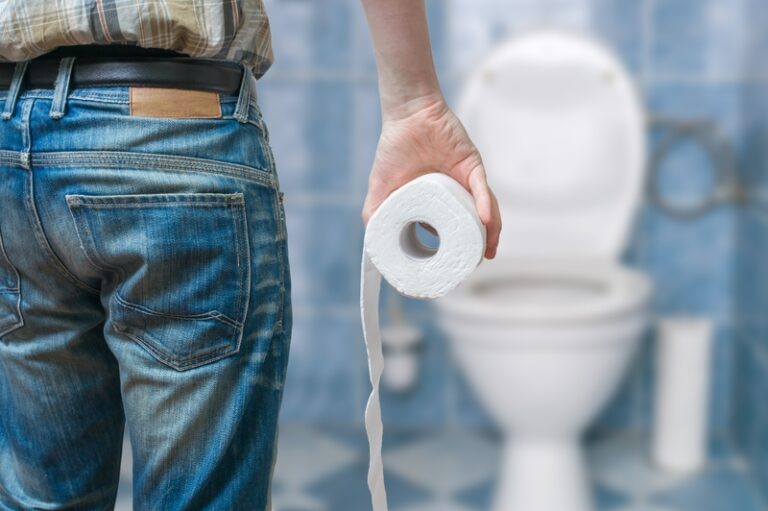Chronic digestive symptoms can make one’s life miserable. We all love to eat, but when eating inevitably leads to diarrhea or constipation (or both), it certainly detracts from the experience. Many of us brush off loose stools, constipation, gas and bloating with a laugh or an excuse. However, persistent digestive issues can indicate a more serious underlying condition. They can also lead to malabsorption which in time points us down the path of degenerative disease. Chronic diarrhea or constipation is a red flag that needs to be addressed!
Some people think straining to poop (magazines or books by the toilet) is normal. However, a bowel movement should last seconds, slide out easily, and require no straining at all. Stools should not be too hard or too small; they should be mushy to formed. Other people crack jokes about their gassy spouse, but once again, gas and bloat are not normal—they are both common signs of pathogenic bacteria in the gut.
The causes of constipation can be as simple as chronic dehydration and lack of movement, to more complex such as food sensitivities, or problems with bile production. Certain foods contribute to constipation, such as gluten, dairy, white rice, bread, and pasta, as do certain medications such as antidepressants, narcotics, and iron pills. Constipation can also be a sign of a more serious condition. SIBO, or Small Intestine Bacterial Overgrowth, is a condition where otherwise beneficial bacteria end up in the small intestine instead of the colon. This extremely uncomfortable disorder causes chronic bloating, gas, and either diarrhea or constipation depending on the type of bacteria involved.
What about diarrhea? Food intolerances are frequently a culprit, especially dairy, but conditions of fat malabsorption also lead to loose and floating stools. Antibiotics, antacids, and blood pressure medication can alter the natural balance of gut flora, leading to diarrhea. Almost all of us have suffered through a bout of food poisoning; however, many do not know that the underlying pathogenic organisms responsible (such as Salmonella, Giardia, and E Coli) often do not get completely cleared and linger for years—a primary cause of IBS.
Crohn’s, celiac, and ulcerative colitis are all inflammatory autoimmune diseases affecting the gut, causing frequent trips to the bathroom, and sometimes blood and mucus in the stool. It is important to get these conditions ruled out, as they can lead to malnutrition, which can result in more serious degenerative disease, such as cancer, Alzheimer’s and Parkinson’s. Antibiotics and steroids provide relief, but also frequently exacerbate and worsen the underlying condition.
At Vital Health, we take symptoms of diarrhea and constipation seriously. We take the time to identify and test for underlying causes. We then apply targeted diet and food-based supplements to create an environment in which the gut can repair, while using acupuncture to synergistically strengthen and reduce inflammation. If you are experiencing warning signs of constipation or diarrhea, don’t ignore them! Prevent future illness by healing your gut.
Want to hear more from Vital Health? Check out our podcast. Search for VitalHealth4You on your favorite podcast listening app or go to vitalhealthcda.com/podcasts/
©2023 Darcy Greenwald, M.S.O.M., L.Ac., and Vital Health







